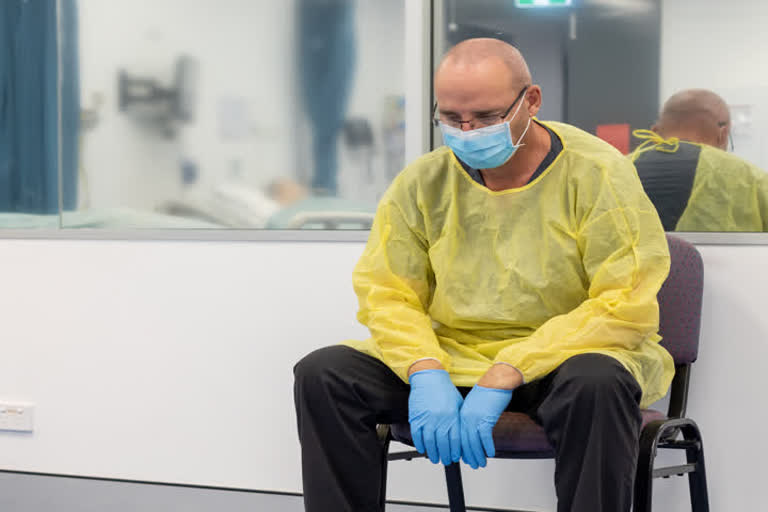In a major study, the researchers have shown that persistent fatigue occurs in more than half of patients recovered from Covid-19, regardless of the seriousness of their infection.
"While the presenting features of SARS-CoV-2 infection have been well-characterized, the medium and long-term consequences of infection remain unexplored," said study author Liam Townsend from St James's Hospital in Ireland. For the study, the research team used a commonly-used scale to determine fatigue in recovered patients, called the Chalder Fatigue Score (CFQ-11).
They also looked at the severity of the patient's initial infection (need for admission, and critical/intensive care), and also their pre-existing conditions, including depression. They also looked at various markers of immune activation (white cell counts, C-reactive protein, Interleukin-6, and sCD25).
The study included 128 participants (mean age 50 years; 54 percent female) who were recruited consecutively at a median of 10 weeks following clinical recovery from SARS-CoV-2 infection. More than half reported persistent fatigue (52.3 percent; 67/128) at this point.
The researchers offered an outpatient appointment to anyone who had a Covid-19 positive swab test in their laboratory at St James Hospital. Of the patients assessed in this study, 71/128 (55.5 percent) were admitted to the hospital and 57/128 (44.5 percent) were not.
"Fatigue was found to occur independent of admission to hospital, affecting both groups equally," Townsend explained. There was no association between Covid-19 severity (need for inpatient admission, supplemental oxygen, or critical care) and fatigue following COVID-19.
Additionally, there was no association between routine laboratory markers of inflammation and cell turnover or pro-inflammatory molecules (IL-6 or sCD25) and fatigue post-COVID-19. The findings showed that female gender and those with a pre-existing diagnosis of depression/anxiety were over-represented in those with fatigue.
"Our findings demonstrated a significant burden of post-viral fatigue in individuals with previous SARS-CoV-2 infection after the acute phase of Covid-19 illness," the study authors wrote.
This study highlights the importance of assessing those recovering from Covid-19 for symptoms of severe fatigue, irrespective of the severity of initial illness, and may identify a group worthy of further study, and early intervention.
It also supports the use of non-pharmacological interventions for fatigue management. The study is scheduled to be presented at The ESCMID Conference on Coronavirus Disease (ECCVID), to be held online from 23-25 September.



